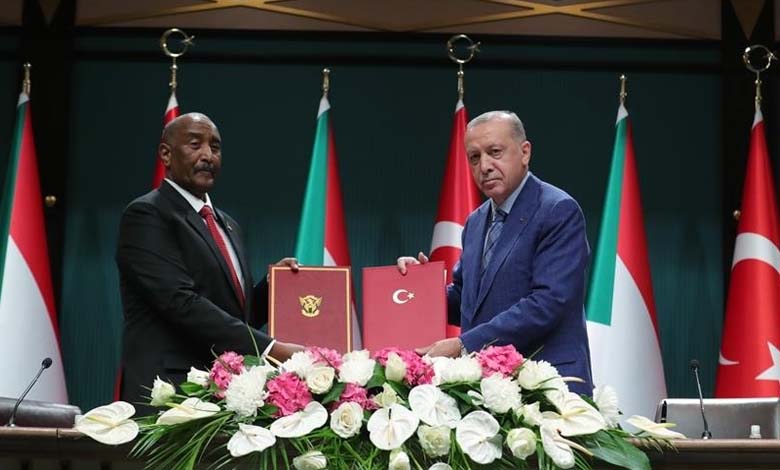Unannounced Visit by Al-Burhan to Turkey Raises Questions about the Return of Islamists

On March 30, 2025, during a secret and unannounced trip, Sudanese Sovereign Council President Abdel Fattah Al-Burhan traveled to Turkey, where he joined his family for Eid al-Fitr celebrations, ahead of his expected participation in the economic forum in Antalya on April 15. However, informed sources revealed that the visit carries serious political implications that go far beyond its familial nature.
-
Sudanese rapprochement with Iran and Turkey: Economic gains or geopolitical threats?
-
The gold alliance between Sudan and Turkey: Political and Economic Exchange
Coordination with Former Regime Figures
Reliable information indicates that Al-Burhan used his stay in Turkey to hold meetings with leaders from Sudan’s former regime, who have been residing in Turkey since the fall of Omar al-Bashir. These meetings aimed to coordinate their return to the Sudanese political scene as part of a strategy to reintegrate the Muslim Brotherhood into power structures.
-
Al-Burhan Meets Leaders in Turkey: Are the Muslim Brotherhood Returning to the Forefront in Sudan?
-
Al-Burhan’s Visit to Turkey: Secret Deals or Political Arrangements?
Investment Promises in Exchange for Political Support
According to diplomatic sources, Al-Burhan offered joint investment projects with Ankara in exchange for Turkish support in facilitating the return of former regime figures, particularly those linked to the Muslim Brotherhood. These moves come amid declining popular and military support for Al-Burhan domestically, prompting him to seek external alliances to bolster his position.
-
Al-Burhan’s Visit to Turkey: Could It Bring Islamists Back into Sudan’s Political Scene?
-
Leaked Documents Reveal Details of Sudanese Government’s Contract with a Washington Lobbying Group
Secret Understandings with the Muslim Brotherhood
During the visit, Al-Burhan held closed-door meetings with prominent Muslim Brotherhood figures in exile, offering them a return to Sudan in exchange for involvement in the upcoming transitional government. This step has sparked serious concerns about a political setback that could drag Sudan back into authoritarianism and exclusion, especially as the war continues and humanitarian conditions worsen.












